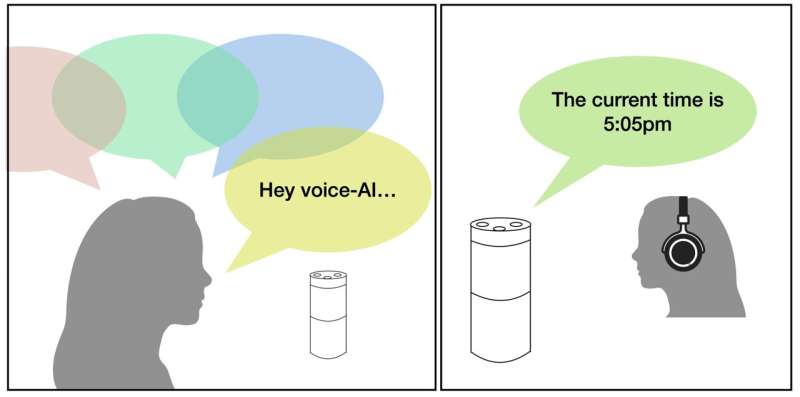
Just a small share of the five hundred maximum visited web content in Spain (which come with the entirety from executive websites to streaming and grownup content material platforms) accurately satisfy the necessities set out within the Normal Information Coverage Legislation (GDPR). This is without doubt one of the major findings of a find out about involving researchers from the Universitat Oberta de Catalunya (UOC), the College of Girona and the Middle for Cybersecurity Analysis of Catalonia (CYBERCAT).
The effects, which can be revealed in Computer systems & Safety beneath a Ingenious Commons license, have been reached the usage of novel computerized strategies for examining web-tracking ways and compliance with web privateness rules.
Along with the fallacious and non-consensual use of cookies, those research algorithms detected using web-tracking ways which are little identified to the common consumer, reminiscent of cyber web beacons and applied sciences in accordance with the browser’s virtual fingerprint.
Contents
Popular non-compliance with privateness legal guidelines
The Ecu Parliament’s approval of the Normal Information Coverage Legislation in 2016 used to be set to perpetually trade how corporations, web content and virtual platforms set up customers’ non-public information. The Ecu legislation, which used to be transposed in Spain because the Natural Regulation at the Coverage of Non-public Information and Ensure of Virtual Rights in 2018, used to be meant to mark a turning level within the coverage of voters’ privateness. On the other hand, six years later, the real implementation of this legislation is progressing at a faltering tempo.
“We discovered that web content nonetheless have an extended technique to cross to accurately put in force the necessities set out within the Normal Information Coverage Legislation,” defined Cristina Pérez-Solà, who took phase in examining this factor as a researcher on the UOC’s School of Pc Science, Multimedia and Telecommunications. She stated, “Lots of the web content analyzed tell customers of using cookies, however both don’t look ahead to their consent to make use of them or achieve this consent improperly.”
For this find out about, the workforce of researchers evolved a number of algorithms to research the five hundred maximum visited web content in Spain in step with the Alexa rating. The effects published a prime share of websites that lack an acceptable shape to acquire customers’ consent for using cookies and different information assortment gear.
The research gear additionally detected using just about 7 monitoring cookies on reasonable in keeping with web page and 11 cyber web beacons, which can be small items of code embedded within the website to invisibly accumulate positive sorts of news from cyber web site visitors. As well as, 10% of the websites analyzed within the find out about use browser fingerprinting ways, which can be additionally tough to discover.
Consistent with Pérez-Solà, knowledgeable in cyber web safety and privateness, “The aim of these kind of ways is most often to trace the net conduct of cyber web customers so as to create profiles that may then be used to regulate the promoting that will probably be proven or the costs that will probably be introduced for product or service.” The research performed through the researchers from the UOC (Pérez-Solà and Albert Jové) and the College of Girona (David Martínez and Eusebi Calle) presentations that most effective 8.91% of web content that download customers’ consent as required observe this consent effectively in follow.
New algorithms to research compliance with the GDPR
Past the research effects, the significance of this analysis lies within the algorithms used to review compliance with on-line privateness legal guidelines. The sheer selection of pages and platforms on the web makes it crucial to automate the method, as learning each and every case manually can be infeasible.
Moreover, one of the vital web-tracking ways used are extraordinarily exhausting to discover, and not using a transparent markers to signify their presence. To conquer those demanding situations, the researchers evolved a proprietary way involving 4 algorithms and a measure—the Web pages Degree of Self assurance—to evaluate the state of regulatory compliance.
“Our way makes use of a mixture of automation and guide inspection. The carried out algorithms robotically browse the analyzed web content and take screenshots which are then manually inspected,” stated Pérez-Solà.
“With a view to discover web-tracking ways, we extensively utilized a device evolved through the Ecu Information Coverage Manager known as the Website online Proof Collector. This software is designed to accomplish privateness inspections on web content and makes it imaginable to discover using cookies, cyber web beacons and browser fingerprinting gear.”
- Every of the algorithms utilized by the researchers has a well-defined serve as:
- The Consent Inspector Set of rules (CIA) captures transparent photographs of the web page’s cookie banners and identifies buttons that are meant to permit customers to customise using those monitoring parts.
- The Website online Proof Collector (WEC) gathers news at the other web-tracking ways getting used on each and every web page.
- The Cookies Detector Set of rules (CDA) categorizes the cookies that web content use within the browsers with out consumer consent, in accordance with the information equipped through the WEC.
- The Internet Beacons Detection Set of rules (BDA) now not most effective extracts cyber web beacons detected through the WEC, but additionally identifies browser fingerprinting ways.
“Our find out about specializes in examining compliance with the Normal Information Coverage Legislation through essentially the most visited web content in Spain,” Pérez-Solà added. “We decided on the five hundred maximum visited web content in step with the Alexa rating and analyzed their use of those web-tracking ways in addition to the ideas they offer to customers and the other choices they supply them with. In any case, we compiled the result of this research right into a measure, the Web pages Degree of Self assurance, which makes it imaginable to evaluate the present state of compliance.”
“Figuring out the main points of the rules that observe at any given time and realizing the way to inform what ways a web page is the usage of are past the grab of maximum customers,” she concluded; “Our proposed Web pages Degree of Self assurance (WLoC) measure supplies customers with perception into the compliance standing of the most well liked web content and allows them to see the way it adjustments over the years with out the desire for criminal or technical wisdom.”
Additional info:
David Martínez et al, Internet-tracking compliance: web content’ stage of self belief in using information-gathering applied sciences, Computer systems & Safety (2022). DOI: 10.1016/j.cose.2022.102873
Equipped through
Universitat Oberta de Catalunya
Quotation:
Probably the most visited web content don’t comply accurately with privateness legal guidelines and actively music their customers, reveals Spanish find out about (2023, March 9)
retrieved 19 March 2023
from https://techxplore.com/information/2023-03-websites-comply-privacy-laws-track.html
This file is matter to copyright. Excluding any honest dealing for the aim of personal find out about or analysis, no
phase could also be reproduced with out the written permission. The content material is supplied for info functions most effective.
Supply By means of https://techxplore.com/information/2023-03-websites-comply-privacy-laws-track.html




